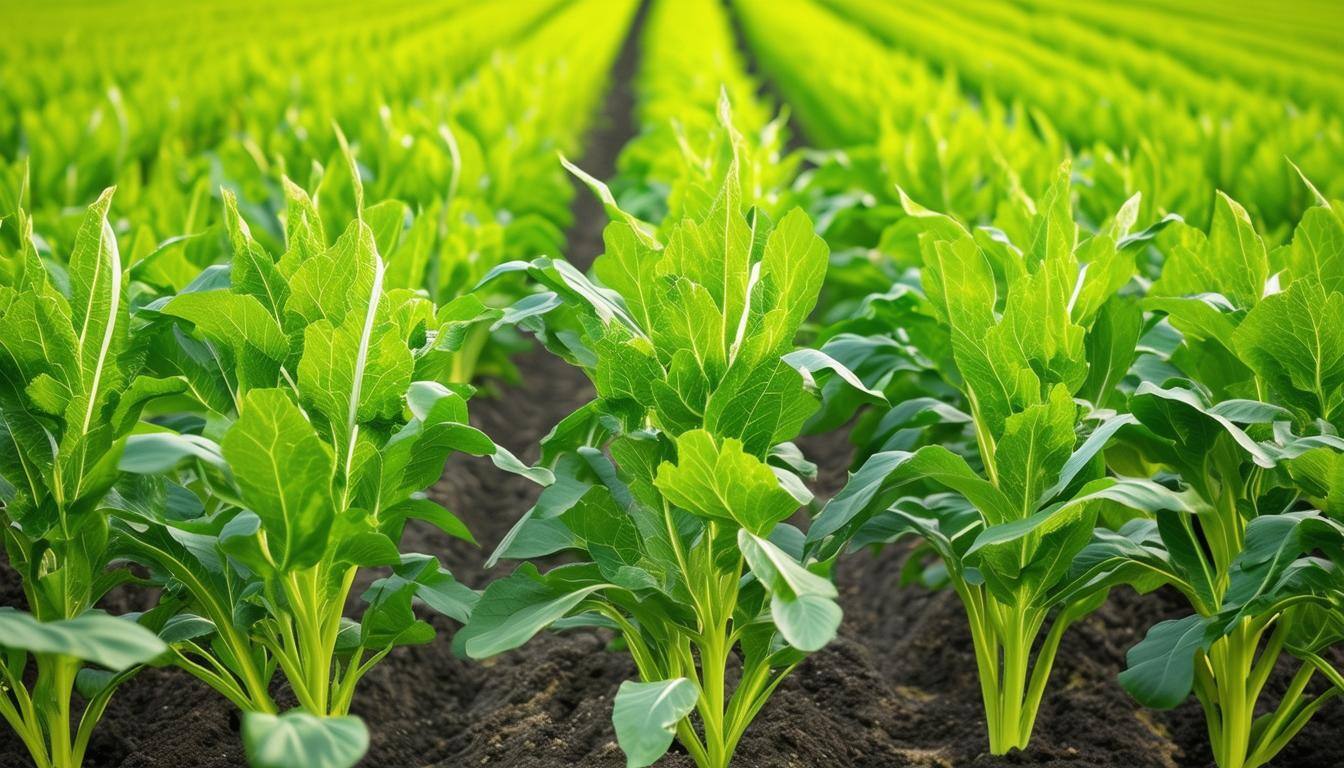Sustainable crop production is a critical component of sustainable food production, focusing on the development of agricultural systems that are environmentally sound, economically viable, and socially responsible. As the global demand for sustainable food production continues to rise, sustainable practices are essential to ensure that crop production meets current needs without compromising the ability of future generations to do the same.
What is Sustainable Crop Production?
Sustainable crop production integrates various agricultural practices that aim to maintain or improve the natural resource base, reduce environmental impacts, and enhance the livelihoods of farmers. This approach combines traditional knowledge with modern technology to create systems that are both resilient and productive.
Key Principles of Sustainable Crop Production:
-
Soil Health Management: Soil is the foundation of crop production, and maintaining its health is vital. Sustainable practices include crop rotation, cover cropping, and reduced tillage, all of which help maintain soil structure, fertility, and biodiversity.
-
Water Efficiency: Water is a finite resource, and sustainable crop production involves optimizing water use through efficient irrigation practices, rainwater harvesting, and drought-resistant crop varieties.
-
Biodiversity Enhancement: Encouraging biodiversity within crop systems helps build resilience against pests, diseases, and climate variability. This can be achieved through polyculture, agroforestry, and the conservation of native plant species.
-
Pest and Disease Management: Sustainable crop production reduces reliance on chemical pesticides by promoting integrated pest management (IPM) strategies. These include biological control, crop diversification, and the use of resistant crop varieties.
-
Economic Viability: Sustainable crop production must also be economically viable for farmers. This involves adopting practices that increase productivity and profitability while reducing inputs and minimizing environmental impacts.
The Role of Sustainable Crop Production in Sustainable Food Production
1. Reducing Environmental Impact
Sustainable crop production minimizes the negative environmental impacts associated with traditional farming practices. By reducing the use of chemical inputs, conserving water, and enhancing soil health, sustainable practices help protect ecosystems and biodiversity.
2. Enhancing Food Security
Sustainable crop production contributes to food security by ensuring a stable and resilient food supply. By adopting practices that improve crop yields and reduce the risk of crop failure, farmers can produce more food on less land, reducing the need for deforestation and land conversion.
3. Supporting Rural Communities
Sustainable crop production supports rural communities by providing farmers with the knowledge and tools they need to manage their resources sustainably. This not only improves their livelihoods but also strengthens the social fabric of rural areas.
4. Climate Change Mitigation
Sustainable crop production plays a crucial role in mitigating climate change by reducing greenhouse gas emissions and enhancing carbon sequestration. Practices such as agroforestry, cover cropping, and reduced tillage help capture carbon in soils and vegetation, contributing to global climate goals.
Challenges and Opportunities in Sustainable Crop Production
1. Access to Resources and Technology
One of the main challenges in sustainable crop production is ensuring that farmers have access to the resources and technology they need to implement sustainable practices. This includes access to quality seeds, irrigation infrastructure, and knowledge about sustainable farming techniques.
2. Market Incentives
For sustainable crop production to be widely adopted, there must be market incentives that reward farmers for their sustainable practices. This can include premium prices for sustainably produced crops, as well as policies that support sustainable agriculture.
3. Education and Training
Education and training are essential for the successful implementation of sustainable crop production. Farmers need ongoing support to learn about new techniques, share best practices, and adapt to changing conditions.
4. Policy Support
Governments play a critical role in promoting sustainable crop production through supportive policies, subsidies, and regulations. Policy frameworks that encourage sustainable practices and protect farmers' rights are essential for scaling up sustainable agriculture.
Case Studies: Sustainable Crop Production in Action
1. India’s Zero Budget Natural Farming (ZBNF)
In India, Zero Budget Natural Farming has gained popularity as a sustainable alternative to conventional farming. ZBNF focuses on reducing the cost of production by eliminating chemical inputs and promoting natural farming techniques that enhance soil health and biodiversity.
2. Sustainable Rice Intensification (SRI) in Asia
SRI is a set of farming practices that improve the productivity of rice by enhancing soil health, water management, and plant growth. It has been successfully implemented in several Asian countries, resulting in higher yields, reduced water use, and lower greenhouse gas emissions.
3. Agroforestry in Latin America
Agroforestry, which integrates trees into crop and livestock systems, is a sustainable farming practice that has been widely adopted in Latin America. It provides multiple benefits, including improved soil fertility, increased biodiversity, and enhanced carbon sequestration.
The Future of Sustainable Crop Production and Sustainable Food Production
The future of sustainable crop production is closely linked to the broader goals of sustainable food production. As the global population continues to grow, sustainable practices will be essential to meet the increasing demand for food while minimizing environmental impacts and supporting rural communities. Continued research, innovation, and policy support will be critical to scaling up sustainable crop production and ensuring a resilient global food system.
Conclusion
Sustainable crop production is a cornerstone of sustainable food production. By integrating ecological principles with agricultural practices, sustainable crop production helps ensure that food is produced in a way that is environmentally responsible, economically viable, and socially equitable. As the food industry continues to evolve, sustainable crop production will play a vital role in meeting the challenges of the 21st century.
Ready to take the next step in sustainable food production?
Explore our Sustainability Intelligence for Sustainable Food Production Software to monitor and manage food sustainability risks and opportunities. Stay ahead with AI-enhanced ecosystem monitoring and streamline your sustainability compliance and reporting.





.webp?width=1644&height=1254&name=Food%20Safety%20Dashboard%201%20(1).webp)
